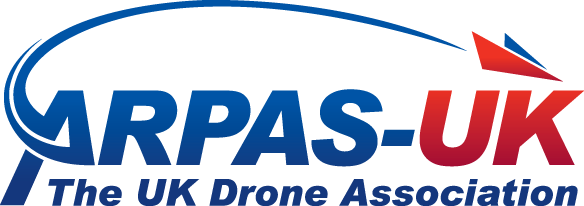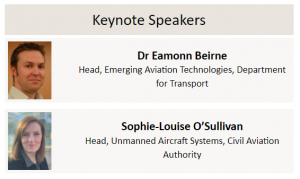with
Stuart Lindsay, Head, Airspace Modernisation, Civil Aviation Authority
Kevin Woolsey, Co-Head, General Aviation and Remotely Piloted Aircraft Systems, Civil Aviation Authority
and
Councillor Keith Artus, Chairman, Strategic Aviation Special Interest Group (SASIG); Helen Hearn, Director, Spectrum Policy, Ofcom; Dr Ruth Mallors-Ray, Director, RMR Consultants; John McKenna, CEO, sees.ai; Nicholas Paines KC, Commissioner for Public Law, Law Commission; Andrew Sage, Director, Safety Transformation, National Air Traffic Services; Fiona Smith, Group Head of Aerodrome Strategy, AGS Airports
and
Andrew Chadwick, Connected Places Catapult; Sam Durham, NFU; Dr Anton Howes, Entrepreneurs Network; Stuart McGlynn, Cyberhawk
Chaired by:
Lord Kirkhope of Harrogate, Vice President, All-Party Parliamentary Group on General Aviation
This conference is bringing together stakeholders and policy makers to discuss the future of remotely piloted aircraft system (RPAS) regulation and commercial use in the UK.
It comes as the CAA updates the Airspace Modernisation Strategy, and Ofcom consults on spectrum management for unmanned aircraft systems – with further studies being conducted by UKRI and the Law Commission.
Delegates will discuss the priorities for the safe and effective integration of unmanned and remotely piloted aircraft systems into UK airspace, and what is needed from regulators and users to enable routine operations beyond visual line of site (BVLOS).
They will also examine emerging RPAS applications in key industries, the integration of drones into existing practices and business models, and the priorities for building business cases and attracting investment.
Booking arrangements:
To book places, please use our online booking form.
Once submitted, this will be taken as a confirmed booking and will be subject to our terms and conditions below.
You can also pay in advance by credit card on 01344 864796. If advance credit card payment is not possible, please let me know and we may be able to make other arrangements.
Options and charges are as follows:
- Access to Next steps for drone regulation and use in the UK (plus a permanent record of proceedings) is £260 plus VAT per delegate
- Concessionary rate places for small charities, unfunded individuals and those in similar circumstances are £115 plus VAT. Please be sure to apply for this at the time of booking.






